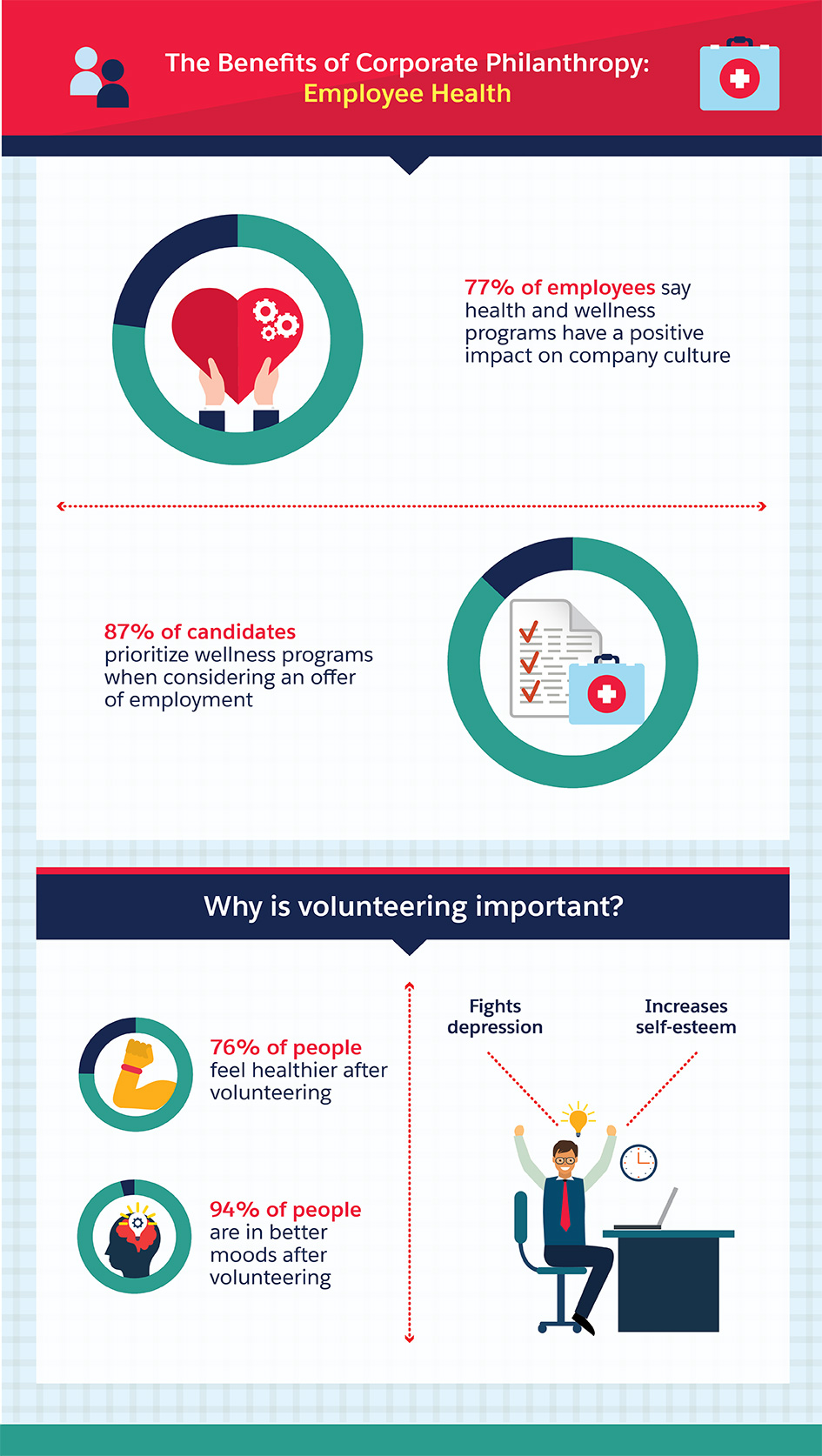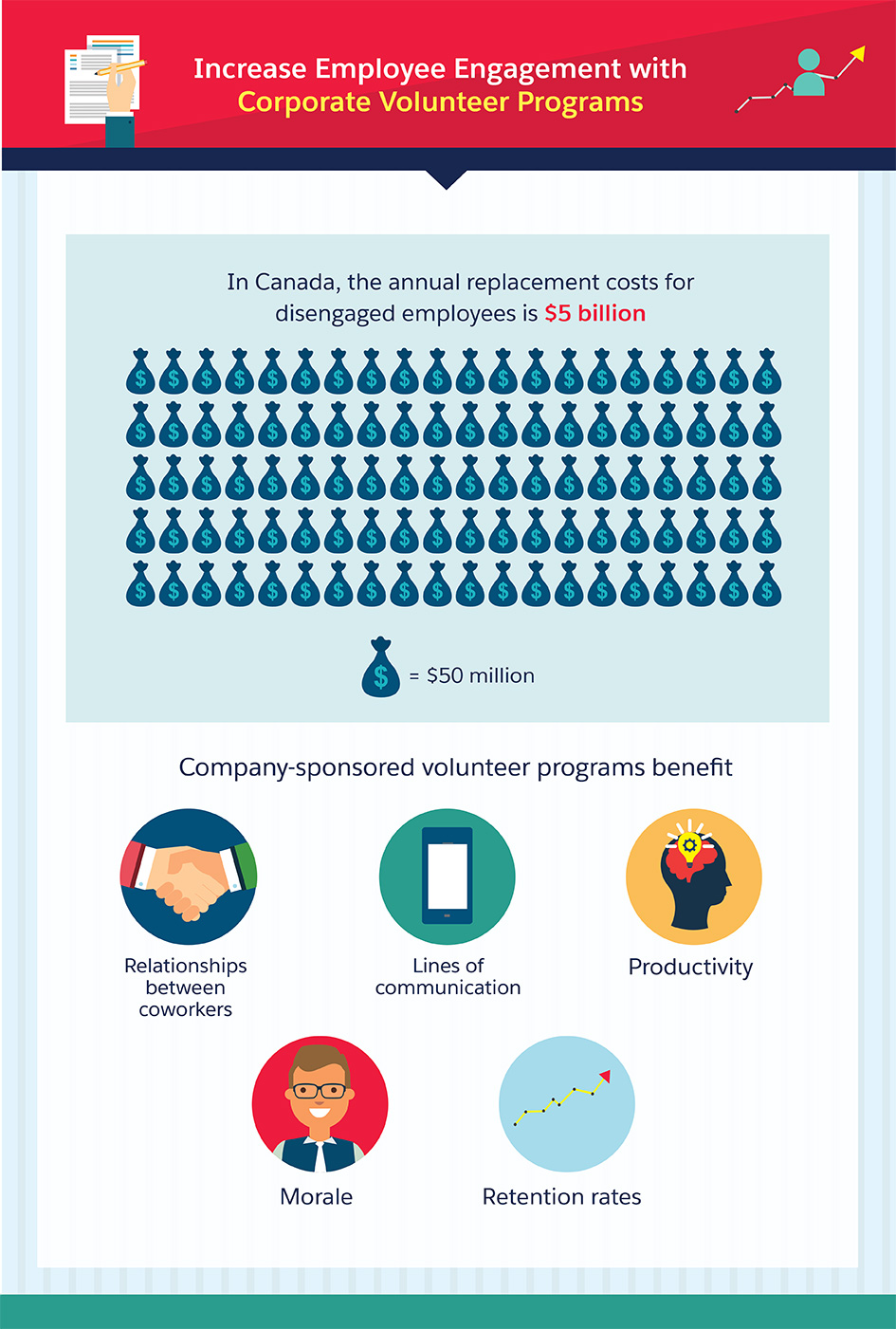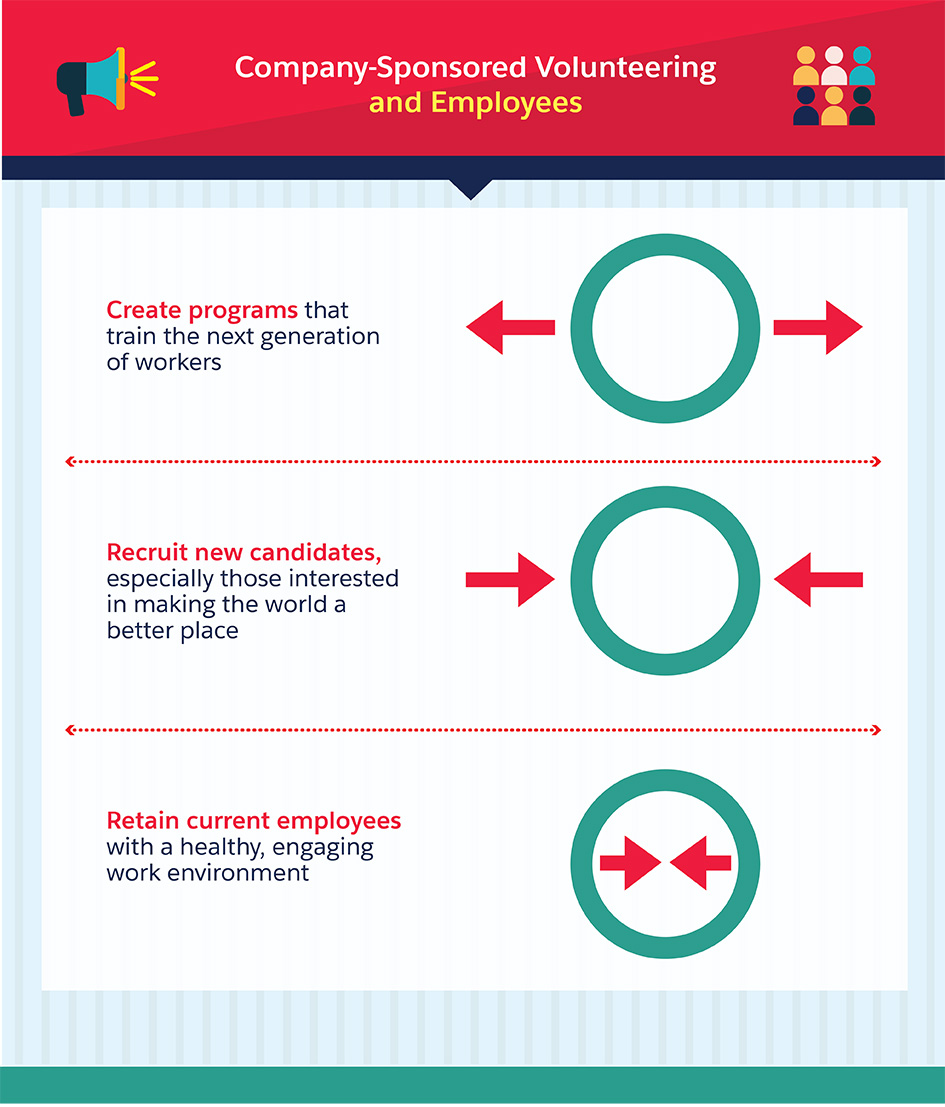Corporate Philanthropy: The ROI of Giving Back



Corporate philanthropy means more than positive PR. It also means healthier, happier employees, reduced turnover, and better candidates for jobs. Both the company and the community win!

Terra Clarke Olsen
In a down economy, companies are even more concerned about their bottom lines. Unfortunately, some businesses respond to economic pressures by reducing or eliminating their philanthropic programs. Many companies scale back their programs, and others without programs completely shelve the idea until profits improve.
What these companies have in common is they have not considered the positive impacts of corporate philanthropy and volunteer programs on employees and their reputation with the public. While on the surface it seems like reducing philanthropic efforts saves money, the reality is that smart philanthropy—whether it’s volunteering time or giving money—can drive tremendous value for a company over the long-term.
The Benefit to Employee Health
First, in order to understand how corporate philanthropy can positively impact the bottom line, it’s important to understand the cost of turnover and the importance of positive employee morale. In fact, after recruiting, training, loss of work productivity, and various other factors, a study found that turnover can cost one-fifth of that employee’s salary. And those are just the outset costs. High turnover also negatively affects overall company morale, which can lead to reduced productivity and continued turnover.
An easy way to try to prevent costly turnover is to focus on employee morale, health, and overall well-being. Employees who are content and feel valued by their employers are less likely to leave a company, and generally produce higher quality work; up to 77 per cent of employees responded that health and wellness programs at their workplaces had a positive impact on the overall work culture.
The Benefits of Corporate Philanthropy: Employee Health
- 77% of employees say health and wellness programs have a positive impact on company culture
- 87% of candidates prioritize wellness programs when considering an offer of employment
- Why is volunteering important?
- 76% of people feel healthier
- 94% of people are in better moods after volunteering
- Fights depression
- Increases self-esteem

A unique addition to the standard health and wellness programs is volunteering, which offers many health benefits. An in-depth study by UnitedHealth Group revealed 76 per cent of people who volunteer said that action made them feel healthier. Furthermore, a staggering 94 per cent said volunteering improves their moods. The same study also found that volunteering helps lower stress, which is a substantial benefit when you consider how stress negatively affects a person’s mental and physical health. The act of volunteering has also been found to fight depression and increase self-esteem.
These benefits—feeling healthier, happier, less stressed, and improving self-esteem—all factor into creating a productive, healthy, fulfilled employee. And as UnitedHealth Group points out, “Healthier employees drive lower healthcare costs and higher productivity.”
There is a strong connection between the wellness and health of employees and the health of the company where they work. The American Psychological Association found that organizations that had “psychologically healthy workplaces” had overall lower absences, better customer service ratings, and higher productivity.
But employee well-being is not just good for increasing retention and decreased costs from turnover—it’s also good for recruitment. A survey found that 87 per cent of employees consider a company’s wellness program when deciding whether or not to accept an offer of employment. The benefits of volunteering go well beyond healthier employees and lower healthcare costs: Volunteering also increases engagement, morale, and camaraderie among co-workers.
Healthier Employees Make for Better Employees
Increase Employee Engagement with Corporate Volunteer Programs
- In Canada, the annual replacement costs for disengaged employees is $5 billion
- Company-sponsored volunteer programs benefit
- Relationships between coworkers
- Lines of communication
- Productivity
- Morale
- Retention rates

Employees who volunteer report being more engaged and mentally present at work. Engagement is a great benefit for employers, considering a recent survey estimates the replacement costs for disengaged employees in Canada is $5 billion a year.
But volunteering doesn’t just increase total engagement at work—it also benefits the bonds between co-workers. The UnitedHealth Group study reports that 81 per cent of employees who volunteer with colleagues through programs supported by their workplaces think their relationships with their coworkers have been strengthened. These positive interactions between coworkers are essential. They help improve lines of communication, which positively affects the overall productivity and morale of a team, as well as boost retention rates within the company.
Keep Employees Longer and Recruit the Best
Volunteering is not just good for retention rates; it also impacts recruiting efforts. Philanthropic companies are more likely to attract the best candidates. For one, volunteering and philanthropic projects create good brand awareness. A company can create a positive reputation among potential recruits because of volunteering endeavors, which gives them an advantage in the recruiting stage. This is especially important to consider because employees report a company’s wellness program is a priority when they consider accepting an employment offer. These philanthropic endeavors also attract a younger generation of applicants—particularly Millennials—since they prioritize making the world a better place.
Beyond active recruiting, volunteering can also attract potential future candidates. One sure way for companies to maximize their return on investment when giving back to the community they serve is to create or participate in training or education programs. These programs are positive for multiple reasons. For one, employees involved in training others hone their work and people skills, in addition to reaping the health benefits of volunteering. This kind of volunteering directly affects the community in a positive way. Economically, it creates more specially trained individuals, which can benefit the company and its industry.
Company-Sponsored Volunteering and Employees
- Create programs that train the next generation of workers
- Recruit new candidates, especially those interested in making the world a better place
- Retain current employees with a healthy, engaging work environment

A company can reap the same benefits by sponsoring training and educational programs: The Salesforce Foundation has awarded $96 million in grants for educational, STEM, workforce development, and technology innovation programs. Salesforce’s programs have been so successful, in fact, that its Pledge 1% program for giving has been adopted by a number of other companies, including Yelp and Optimizely.
Philanthropic planning—where a company recognizes a cause that is beneficial to its business, employees, and community—creates a positive situation that maximizes the social and economic value created. It also creates a balance between social and economic benefits. Overall, it’s a win-win.
In the end, the strongest case for companies to create a volunteer program is the overall return on investment. Though there are costs associated with employees who volunteer their time, the costs are minimal compared to turnover. VolunteerMatch found that the “most successful EVP’s (Employee Volunteer Programs) invest an average of $179 per employee per year.” Since this data includes large companies, the range is actually $18 to $800 per employee. Using the average found by VolunteerMatch, this means that a company of 100 people could spend $17,900 a year to implement a volunteering program.
Volunteering creates happier, healthier, and more productive employees. This results in lower turnover, which can cost companies thousands of dollars, depending on the employee’s salary. In fact, a recent study found that it costs between $15,000 and $25,000 to replace a millennial employee. With this statistic, as well as the other reasons discussed in this article, a volunteering program is a valuable, positive investment for any company. By taking the time to create and manage a volunteer program, companies can increase their employees’ health and productivity while also improving their retention rate. The return on investment for a company’s philanthropic endeavors is invaluable and incalculable not only to the company, but to society as a whole.
Share “Corporate Philanthropy: The ROI of Giving Back” On Your Site






